Workshops
Please ensure you have enrolled in the workshop course in enrolment online before proceeding with preferencing.
(Note: There is a separate page for Fine Art Studio classes and a separate page for ART: History+Theory+Cultures classes.)
The workshops will be for both first and second year students and will be offered under the following course codes:
Workshop 2 VART 3650 (1st year students)
Workshop 4 VART 3652 (2nd year students)
These Workshop classes are 12 credit point courses and will require 3 contact hours per week plus associated learner directed hours.
For more information about a course, please contact the Studio Lead of the offering studio or course coordinator.
Preferencing will be through RMIT MyTimetable:
- 10am Friday 10 June 2022: Preference entry opens.
- 5pm Friday 24 June 2022: Preference entry closes.
- 5pm 24 June - Monday 4 July 2022: myTimetable closed while RMIT allocates students to classes.
- 10am Monday 4 July 2022: myTimetable opens for review and allocation adjustment, on a first-in, best-served basis.
You must not repeat any class in your preference lists. Every effort will be made to place you in your first preference classes.
IMPORTANT PLEASE NOTE: Although we would like to offer all of the workshop options below, classes are subject to viability and may not run if numbers are too low.
Course Information
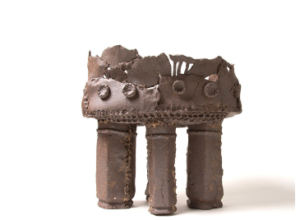
Seala Lokollo Evans
Alternative Clay Forming
This course is an explorative approach to alternative methods of clay forming. Investigating influences and techniques, you will explore non-conventional sculptural methods to manipulate and develop form and surface qualities using a variety of differing clay bodies. Projects will encourage material experimentation with a focus on practice and enquiry. In response to your own work, you will research and document a series of artists, works and ideas and begin to build an archive of research material to draw on in the future.
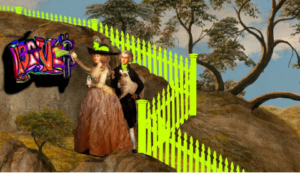
Joan Ross, The Claiming of Things, 2012 (Detail)
Art and the Natural World
In this practical workshop class, you will develop a variety art works that respond to the way the natural world is both experienced and conceived in the contemporary context of the Age of Anthropocene.1
This workshop will introduce you to contemporary art practices that engage with landscape, natural history and ecology. You will explore how visual artists have engaged historically with the natural world, reflecting cultural attitudes to nature and how multiple forms of contemporary art making have evolved in response to changing understandings of ecology and our place within it.
In this class you may experience a diverse range of media – exploring how ecological issues, site specific, ephemeral and interactive projects may be experienced through your individual practice.
Individual and group tutorials, discussion and feedback sessions, studio demonstrations, student presentations and studio health and safety complement this painting workshop.
(1) The period of time during which human activities have had an environmental impact on the Earth regarded as constituting a distinct geological age
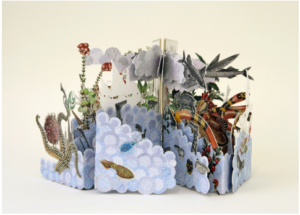
Trans Baltic-Tasman Crossing, 2018. Jazmina Cininas
Book Art As Object
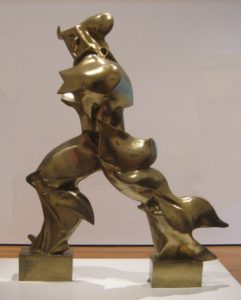
Unique Forms of Continuity in Space, 1913 bronze by Umberto Boccioni
Bronze Foundry
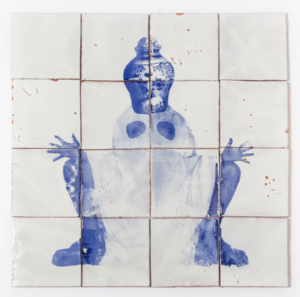
Leila Baptist. Photographer: Janelle Low
Clay and Print: Experimental Process
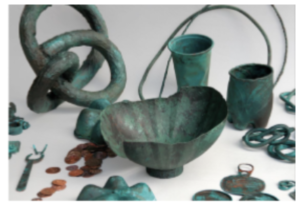
PETER BAUHUIS’ TREASURE OF KOLOMNA, SUPPOSEDLY FROM RUSSIA, CA. 600 AD; BRONZE, COPPER
Casting and Metal Alloying
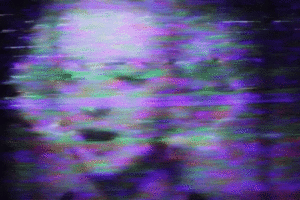 Glitch by Liaizon Wakest
Glitch by Liaizon Wakest Glitch – interruption disturbance & malfunction
What is a glitch? The glitch is a gap, failure, interruption or a ‘spanner in the works'. The glitch disrupts and in doing so poses a threat to order, becoming a radical opportunity for (as Legacy Russell argues) redirection, remix, and rebirth. This course encourages and prompts you to look for malfunction as an opportunity for creativity. You will explore this via digital tools as well as an exercise in thinking through non-digital studio methodologies and cultural gestures. A broad range of experimental techniques incorporating both digital and non-digital methods and media will be introduced in this hands-on workshop as you create and explore your own original glitch methodologies. Individual and group tutorials, discussions, lectures, demonstrations, screenings, and feedback sessions will complement this workshop.
Embrace your mistakes, celebrate accidents, and revel in the unexpected!
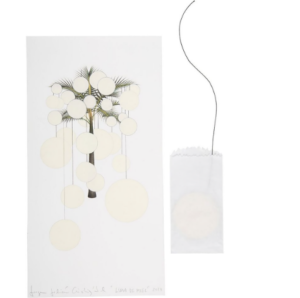
Jorge Julian Aristizabal ‘Honeymoon’ 2013 Mixed media: gouache, string, graphite on paper, paper bag
Hybrid 2D Drawing
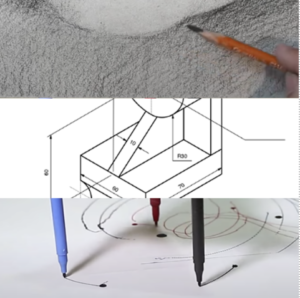
From Hand to Machine: authored & unauthored drawing
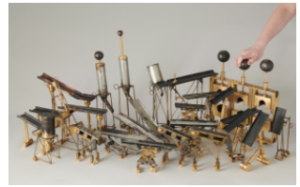 Yi Jen Chu, 2021, Excess production line series, Brass, Copper, Gilding metal, Tin Plating, Photographer: Fred Kroh
Yi Jen Chu, 2021, Excess production line series, Brass, Copper, Gilding metal, Tin Plating, Photographer: Fred Kroh Model & Scale: Sculpture / G+S
This course brings together the conceptual and technical skills required for model making. The consideration of scale, from the very large to the very small will provide alternate spaces for you to experiment with different methodologies in relation to your work. You will research historical and contemporary models and marquettes that have been used to visualise ideas, plan exhibitions and aid and test public and more intimate works. Models as artworks will also be explored.
The exploratory nature of this course will extend your material and process knowledge, and skill, (and tool use) through reductive, additive and transformative technologies, including carving, sawing and fabrication methods using sheet materials such as card, wood, metal and foam core, while shaping and modelling materials such as polymer clay and casting materials such as plaster. You will also be encouraged to collect, re-use and recycle materials. To inform studio production, you will explore a conceptual and experimental approach to model and scale through collage, drawing, documentation and assemblage processes.
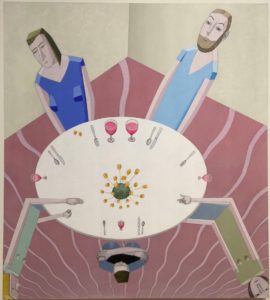
Mernet Larsen, Punch, 2016. Synthetic polymer paint and mixed media on canvas. Patricia Lucille Bernard Bequest Fund, 2016, Art Gallery of New South Wales. Photo, Peter Ellis
Painting, Concepts and Practice
This course extends upon the concepts, materials and process of painting and related practices of drawing, installation and the object. You will experience a wide range of materials and production processes to create artworks relating to painting with an emphasis on experimentation, conceptual development and studio research. The course is structured through generalised thematic projects and advanced individual self-directed projects.
You will experiment with materiality, colour, surface, scale, texture, gesture, images, chance, pattern, repetition and working in series. There will be a focus on abstraction and figurative modes of expression. Themes in contemporary art will be investigated to demonstrate how artists initiate, expand and maximize outputs through experimentation and research. Individual and group tutorials, discussion and feedback sessions, studio demonstrations and studio health and safety complement this painting workshop.
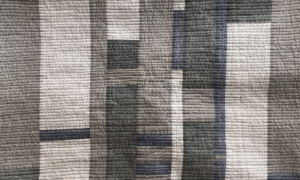
Gabriel Nilsen & Kirsty Macafee
For Lil, Naples, Italy, 2015 - Meta, 2018
Digital print on 100% organic cotton, cotton wadding, cotton thread
Dimensions: variable
Repurposing the Print: Exploring Digital Materiality
This course will examine how image-making can be constructed and manipulated through digital and analogue technologies. It investigates a contemporary image space and assists you in exploring ways of thinking about representation and art making using both hand and machine processes and technologies.
You will experiment with image capture and process, create digital prints, and ultimately rework the print. You will interrogate deconstruction, reconstruction and overworking and potentially using collage, drawing, and painting techniques to apply them where appropriate, to your current studio practice.
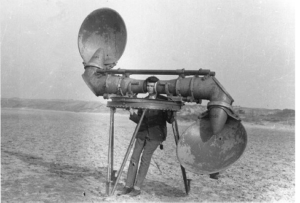
Photo credit: Hulton Archive / Buyenlarge / douglas-self.com / Library of Congress / IWM)
Sound Art - Creating in Time & Space
In this workshop we will close our laptops and make experimental sound work that interacts with the world and the people around us. Using sound together with visual and physical elements in ways that evolve in spaces and over time. You will creatively work with sound recording devices, exploring speaker set-ups, editing and composition to prepare content and incorporate physical elements and themes drawn from your own practice.
Together, we will listen to important sound works, and how they create experiences that emerge over time. We will also listen to the world around us to explore its complex makeup and discover how fresh relationships are always emerging. We will work in groups and individually as we develop a range of installation artworks, sound sculptures and performances in real-world situations.
No prior experience or expertise in sound is required – come as you are! The workshop is available to anybody, including students who took the Art & Sound workshop last year. I would do this workshop myself, if I could!